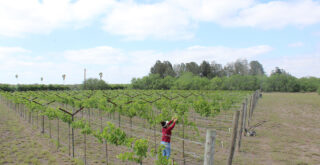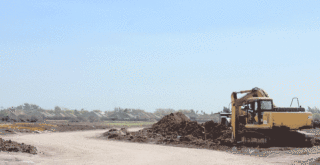- National Library Week in Los Fresnos
- Lady Falcons are Class 6A Champions
- New Beauty Clinic Opens Up in Los Fresnos
- “Houston’s Most Notable” —Los Fresnos Raised
- Earth Day 2024 coming April 6th in Los Fresnos
- Another Successful Golf Tournament for the Leo Aguilar Foundation
- Back to The Moon Again
- March 2024 Your Health Matters
- Lady Falcons in Tournament Play
- Easter Fun at Big Red’s Ranch
Report: Fracking Stresses Texas Water Supplies
- Updated: September 14, 2018

Global water withdrawal for energy production constitutes 15 percent of the world’s total water consumption. Photo: Pixnio
by Eric Galatas
AMARILLO, Texas – The oil and gas industry’s thirst for water – a critical component of hydraulic fracturing – has skyrocketed, according to a Duke University report.
Industry use increased by more than 700 percent between 2011 and 2016.
If current trends continue, Avner Vengosh, the report’s co-author, says there could be clashes in the not-so-distant future over finite water supplies that communities rely on for drinking water, crops and livestock.
Vengosh says the situation in the eastern U.S., where water is more abundant, is markedly different than western states experiencing prolonged drought.
“It’s a totally different ballgame if you go to western Texas, where water is so important for the livelihood,” he points out. “And the idea that the oil and gas industry would continue to take fresh water, it could be problematic.”
Vengosh says early research suggested that fracking did not require more water than other energy development. But he explains that since the production at fracked wells drops dramatically after a few months, the most economical way to extract oil and gas is to drill more wells, which requires more water.
Vengosh suggests one solution might be for industry to use wastewater instead of fresh water for new wells.
Most of the water used for fracking is captured deep within the earth, which means it’s lost for any other use.
Vengosh notes that wastewater released through the fracking process still needs to be disposed of, and the primary way to do that – through deep well injections – has been shown to cause earthquakes.
“The water that you put in is not the water that’s coming out after hydraulic fracturing,” he explains. “It’s water that would be highly saline with a lot of chemicals. Some of them are toxic chemicals, some of them are radioactive.”
Salts and toxic elements in the flowback water also pose contamination risks to local ecosystems from spills.
While energy production currently is responsible for 15 percent of water use globally, the study notes water supplies also are diminishing at a rapid rate across the planet because of climate change and population growth.
Vengosh adds that understanding how much water is at stake for fracking is important, especially as other countries such as China bring their natural gas reserves online.





